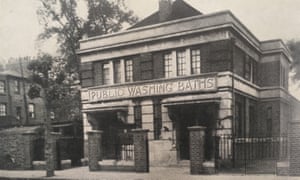“The first thing I did when I came to the UK was look for a job!” Susan laughs. “No, but really, the first thing I did was look for a community.” Susan arrived in the UK in the late 1980s, having fled the Philippines with her baby daughter. She had risked her life and been imprisoned as an activist unionising workers in the north of the country. Miners she knew were forced to live in “camps”, where whole families slept in rooms of five square metres, sharing unsanitary latrines. Dangerous conditions in the mines resulted in frequent fatalities.
Susan considers herself fortunate that she didn’t lose her life when trade union activists in the area were targeted, though many of her colleagues did. By chance, when the arrests took place she was in hospital giving birth to her daughter. “These days I tell my daughter that she saved my life,” Susan tells me. Yet when her baby was only a week old, Susan was arrested and jailed. Conditions in the prison were “horrible”, and she was separated from her newborn. Up to a hundred women were enclosed in a single room, where political prisoners like her might share a four-tier bunkbed and a single toilet with those arrested for burglary or murder. After several months in jail, and supported by trade unions around the world campaigning for her release as a nursing mother, she managed to relocate to the UK, determined to give her daughter a “fair chance of peace and survival”.
But that didn’t mean giving up on activism. With a full-time job and a young family, Susan gave up evenings and weekends to support other women who had migrated to the UK. Domestic workers were especially vulnerable, as well as women euphemistically known as “mail-order brides”. The UK government treated these women as the baggage of their employers and partners, not as human beings and workers with rights. Many women were afraid to join the campaigns, and volunteers struggled to find time to secure much-needed space and resources. Without a physical base, the community risked fragmentation.
As a researcher working with Filipina migrant women on a daily basis, I have heard first-hand how much it still means for them to find a home away from home. Amara, a domestic worker who managed to escape her abusive employers, says migrants and refugees are always looking for a family. “It’s so important for us to have a community here: to belong.” Because they work “behind closed doors” and sometimes even live in their employers’ homes, invisibility and isolation can mean domestic workers’ struggles go unheard. Undocumented women fleeing forced labour have told me they are afraid to even take the bus for fear of being caught, let alone approach the police or rights charities for support.

It is this urgency that has brought Filipino, Chinese and Vietnamese groups together to revive a historic 1930s building in east London as a community base, despite the political hostility currently raging between their home countries. “Let the politicians fight about those things, and let the communities come together,” says Susan. She is leading the campaign, still fighting for migrant women’s rights 30 years after her escape.
This week the mayor of London announced his commitment of £35,000 to crowdfund the re-opening of the Old Bath Community House in Hackney. The centre aims to support refugees and migrants through legal advice, women’s empowerment and a social hub. Despite the mayor’s commitment, the campaign still needs to crowdfund about £10,000 to get the project over the line. If they succeed, a community kitchen will open in May next year, the heart of the centre and a way of building bridges with local residents through East Asian cooking classes and pop-up restaurants. East London will see the restoration of a historic public building currently on the brink of dilapidation, and a grassroots revival of the area’s multicultural heritage at a time when so much is being trampled by gentrification. As migrants and refugees facing institutionalised xenophobia in Theresa May’s “hostile environment”, community leaders say a common struggle has united them.
For Susan, the centre means migrant women will finally have a space to come together. “People will be sharing happy things, and also difficult things. And that’s what a home is: where you can do that and feel you’re not being judged, you’re not being shunned.” The stakes are high, not least for domestic workers at increased risk of modern slavery in the UK. Susan speaks with a defiance nursed in a 1980s prison cell. “We’re going to build a home here, where everyone will be welcome.”
• Ella Parry-Davies is a British Academy fellow at the Royal Central School of Speech and Drama


View all comments >